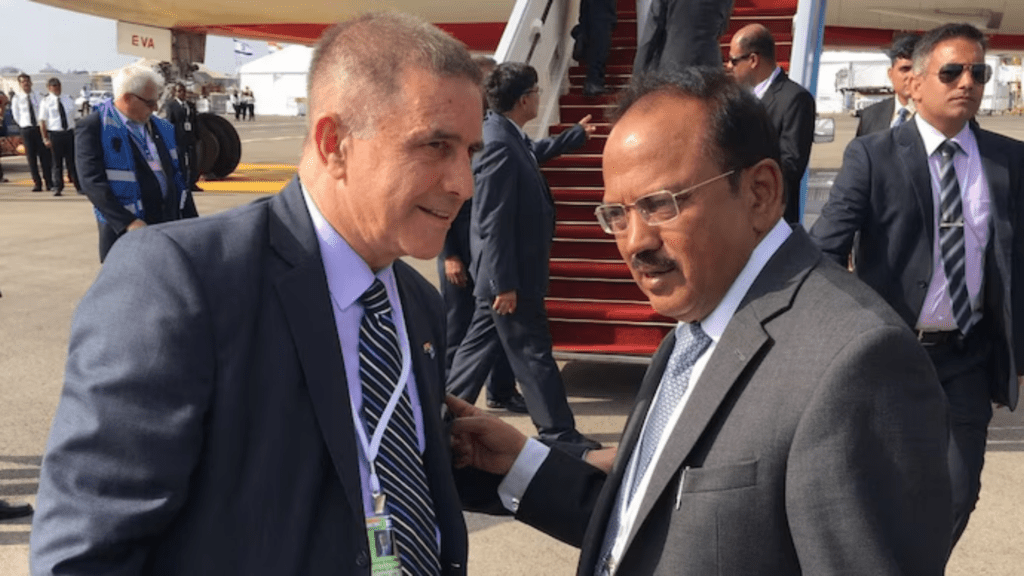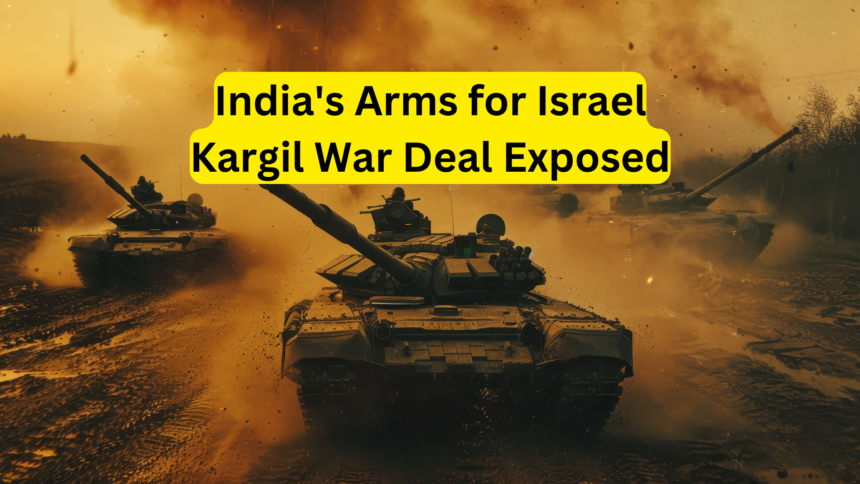Introduction
The Kargil War, a critical conflict between India and Pakistan in 1999, is remembered for its intense battles and significant geopolitical ramifications. Recently, a startling claim by former Israeli envoy Daniel Carmon has surfaced, suggesting that India supplied arms to Israel during this period. This revelation, if true, underscores a complex web of strategic alliances and covert operations that shaped the course of the Kargil conflict.
Background of the Kargil War
The Kargil War, fought in the harsh terrains of the Kargil district in Jammu and Kashmir, marked a pivotal moment in South Asian history. Triggered by the infiltration of Pakistani soldiers and militants into Indian territory, the conflict spanned from May to July 1999. The war, characterized by high-altitude warfare and severe combat conditions, resulted in significant casualties on both sides. The strategic importance of the Kargil region, coupled with the nuclear capabilities of both nations, heightened the global stakes of this confrontation.
Israel’s Involvement in the Kargil War
While the Kargil War primarily involved India and Pakistan, Israel’s involvement added an intriguing dimension to the conflict. Historically, India and Israel have shared a discreet yet robust military partnership. During the Kargil War, Israel reportedly provided crucial military assistance to India, including surveillance equipment and ordnance. This support played a vital role in enhancing India’s operational capabilities in the challenging mountainous terrain.
Allegations by Former Envoy
Daniel Carmon, who served as Israel’s envoy to India, has made bold allegations regarding the extent of India’s support to Israel. According to Carmon, India supplied arms to Israel during the Kargil War, ostensibly in return for Israel’s backing during the conflict. This claim suggests a clandestine exchange that went beyond mere diplomatic support, hinting at a deeper strategic collaboration.

India’s Strategic Interests
India’s decision to supply arms to Israel, as alleged, would have been driven by a confluence of strategic imperatives. The Kargil War underscored the necessity for advanced military technology and reliable allies. By assisting Israel, India could have aimed to secure Israeli military aid, vital for countering the Pakistani incursion. Furthermore, such an arrangement would strengthen Indo-Israeli defense ties, ensuring mutual support in future conflicts.
Israeli Perspective
From the Israeli standpoint, supporting India during the Kargil War aligned with its broader geopolitical strategy. Israel has consistently sought to forge strong alliances with major non-Arab powers. India’s position as a regional hegemon and its strategic location made it a valuable partner. By providing military support, Israel not only bolstered a critical ally but also secured access to Indian markets for its defense technology.
Diplomatic Reactions
The allegations by Carmon have elicited varied reactions. The Indian government has maintained a cautious stance, neither confirming nor denying the claims outright. Such discretion is characteristic of India’s approach to sensitive defense matters. Internationally, these revelations have sparked discussions about the ethical and legal implications of covert arms deals. The potential fallout on Indo-Pak relations and regional stability remains a concern.
Military Impact of the Alleged Arms Deal
The alleged arms deal between India and Israel, if substantiated, would have had a significant impact on the Kargil War. Israeli military technology, renowned for its precision and effectiveness, could have provided Indian forces with a critical edge. Enhanced surveillance capabilities and advanced weaponry might have accelerated India’s efforts to reclaim the occupied territories, potentially reducing casualties and operational costs.
Historical Precedents and Similar Allegations
Covert military cooperation is not unprecedented. Throughout history, nations have engaged in secretive arms trades and alliances to bolster their strategic positions. The Cold War era, for instance, was rife with such clandestine arrangements. Comparing the India-Israel scenario with historical precedents highlights a recurring theme in international relations: the pursuit of strategic advantage often necessitates covert operations.
Conclusion
The allegations by former envoy Daniel Carmon about India’s arms supply to Israel during the Kargil War cast a new light on the conflict. These claims, if verified, reveal a complex interplay of strategic interests and covert operations. The long-term implications for Indo-Israeli relations are profound, underscoring the intricate dynamics of global diplomacy and military alliances. As the discourse unfolds, the legacy of the Kargil War continues to shape the geopolitical landscape, reminding us of the enduring impact of historical events on contemporary international relations.
For more content follow Humstory













